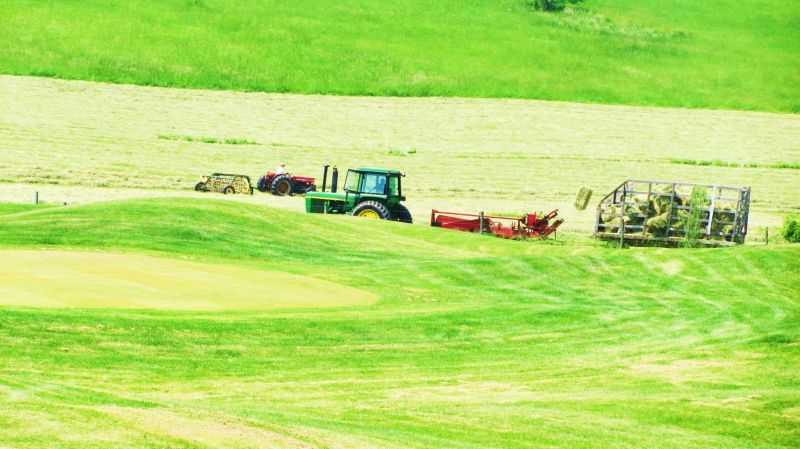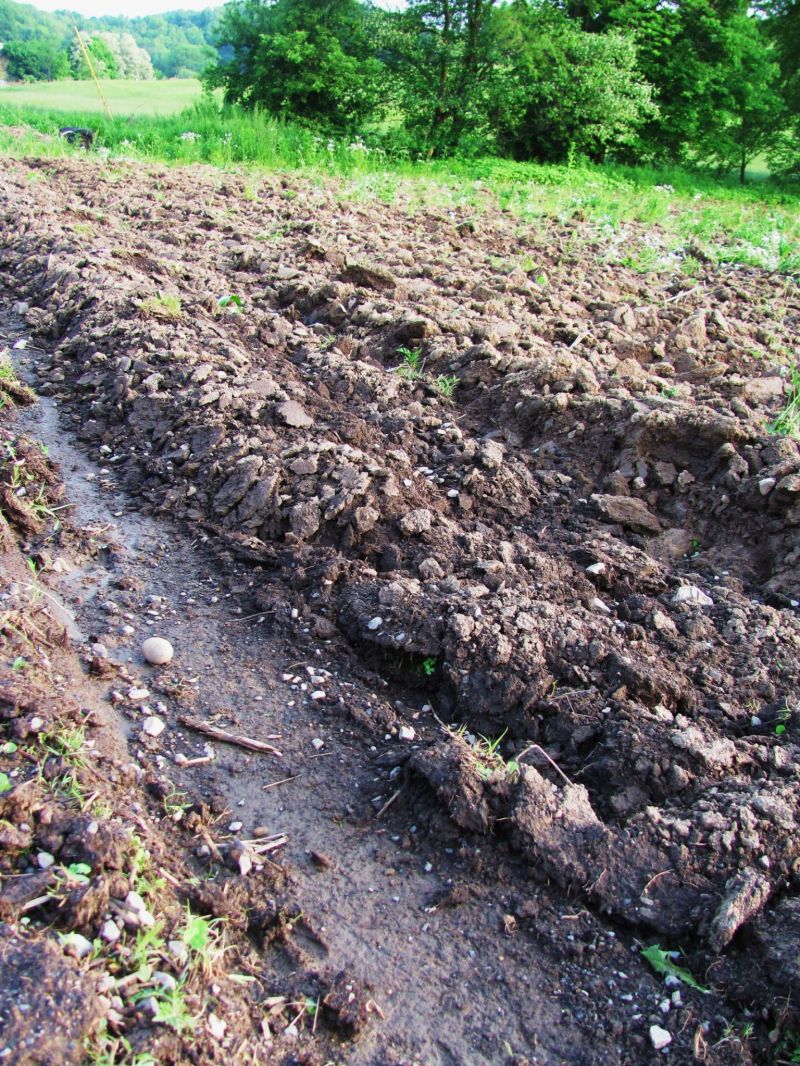Farmers planting efforts hampered by unusually wet spring weather conditions
Summary: Although rain is welcomed by Ohio farmers as a necessity for growth of crops and livestock, extremely wet weather conditions, as experienced in the region through April and May, can detrimentally affect the planting and harvesting calendar.
Rain, rain, go away, come again some other day.
So goes the popular childrens nursery rhyme. This spring, Ohios farmers were chiming in on the age old tune, as excessive rainfall delayed planting.
The optimal time frame for planting Ohio corn is from April 20 to May 10. But as of May 31, the USDA said that only 11% of Ohios corn crop was in the field, compared to a typical 80% by that date. Corn planted in April has a higher yield than corn planted later, with a loss of about a bushel an acre for mid May plantings and a loss of two bushels for corn that does not go in until the end of the month.
Farmers must constantly keep an eye to the sky, shifting their planting plans according to both short and long term outlooks. When wet weather persists throughout Spring and corn planting dates push into late May and June, many may choose to substitute soy bean plantings on acreage previously used for corn. They may switch to a shorter season variety, have to increase the number of seeds they plant per acre and significantly alter their tilling practices. Nitrogen applications must also change, and all of this adds up to a whole new equation when it comes to figuring profit margins, which are already slim in agriculture. Some will opt to plant soybeans instead.
Many local farmers were not able to get into their fields until Memorial Day weekend.
We are about a month late at this point. We had the manure pits full, and couldnt get it on the fields because it was too wet to get in, explained Tuscarawas County dairy and crop farmer Jan Quillin. We usually would have it all spread by now, but we are just going to have to spread as much as we can and go ahead and plant the corn.
Quillin said that due to the delayed planting season, farm duties are piling up and overlapping rather than occurring sequentially. He finds himself in the unusual position of having corn planting season and hay making happen at the same time, which means he and his family must use the same amount of manpower and equipment to do two or more times the workload.
Everything is pushed back, agreed the farmers son and farming partner Steve Quillin. The fact of the matter is, it looks like we might be shelling corn at Christmas.
The younger Quillins wife, Sonja, was glad to see that a stretch of dry weather predicted for the Memorial Day weekend and on would make it possible for the farmers in her family, including her father and brother, Ed and Austin Specht, to get into their fields to plant.
I dont like the long, wet spring because it makes all the farmers grumpy! she laughed.
This farm is all grass. We do our crops on a neighbors farm, and70 percent of that is done, said Winesburg area dairy farmer Mervin Hershberger, who admits that the soil in his area is different than the heavier clay soil in other areas, and therefore dries out more quickly. Id say we are probably two weeks behind in our planting. Usually by this time, the corn is planted, and we are pretty well into our haymaking. We cant do as much as a tractor can, so it takes longer with horses. Wet conditions are different for horses, as we can probably get into the fields earlier after rains. Horses have less compaction. They can get through wet ground better than a tractor can.
The Hershbergers dairy cows are happy with the wetter conditions.
Said Hershberger, There is no problem with the grass for our cows. With the sun and the low night temperatures, plus all the rain, it is growing fast.
Kidron Greenhouse owner Marion Steiner was matter of fact when describing the conditions that have delayed planting of his familys produce acreage. The One above sends what He sends, he wisely commented.




